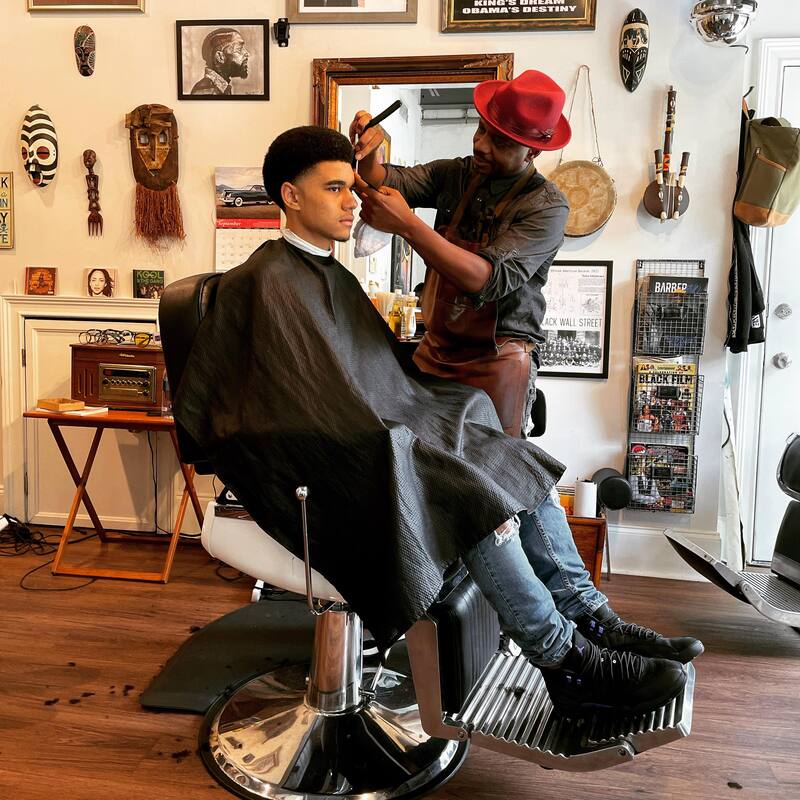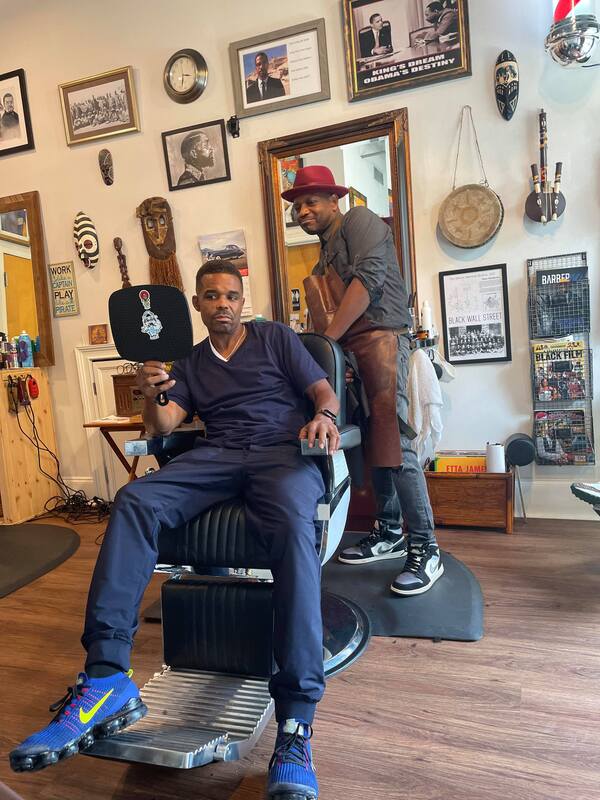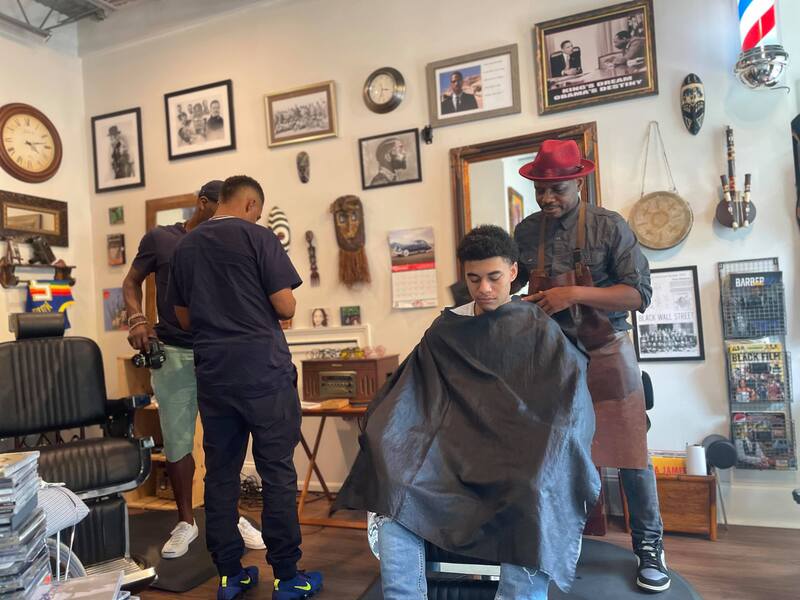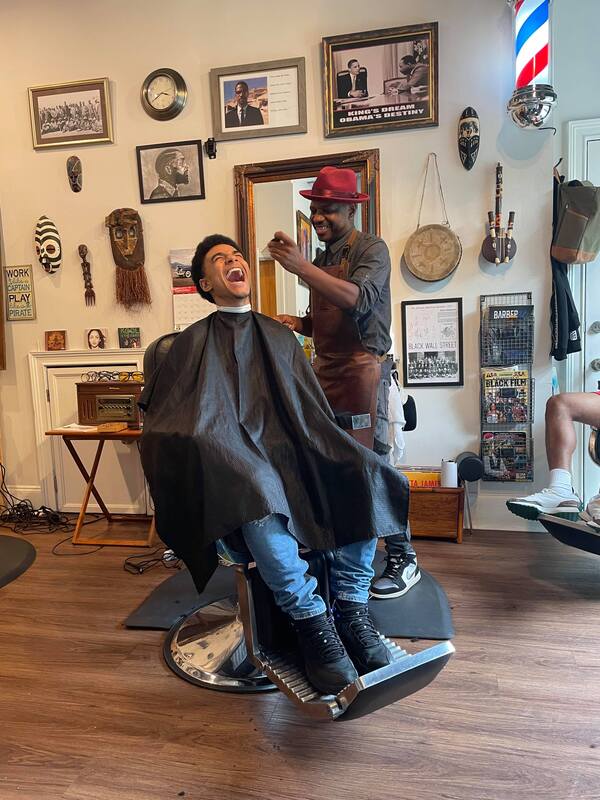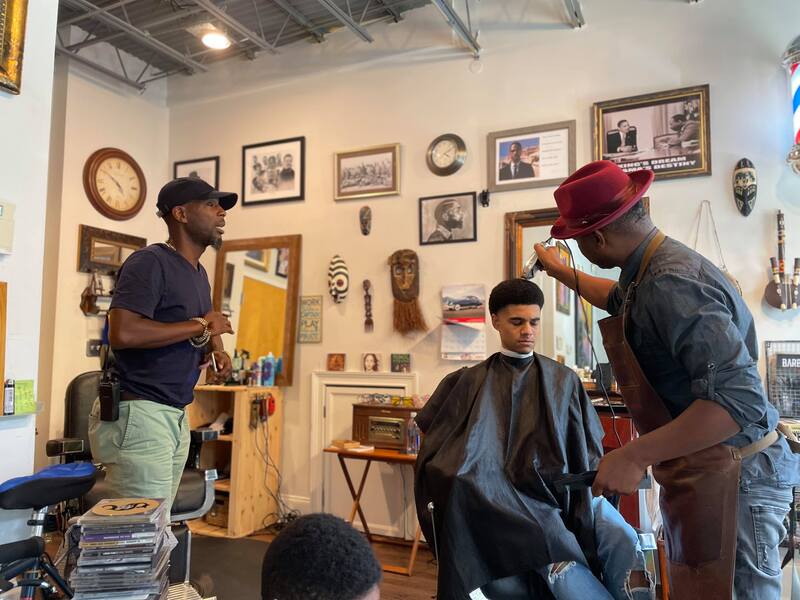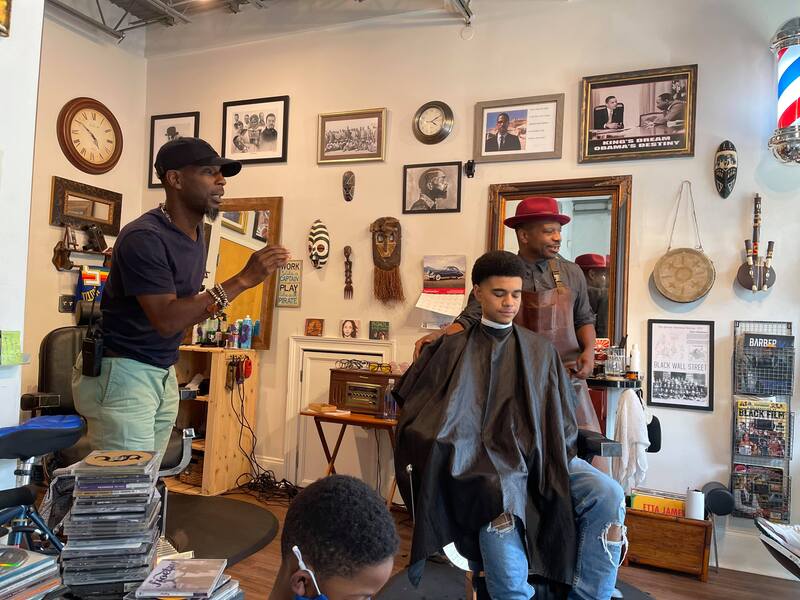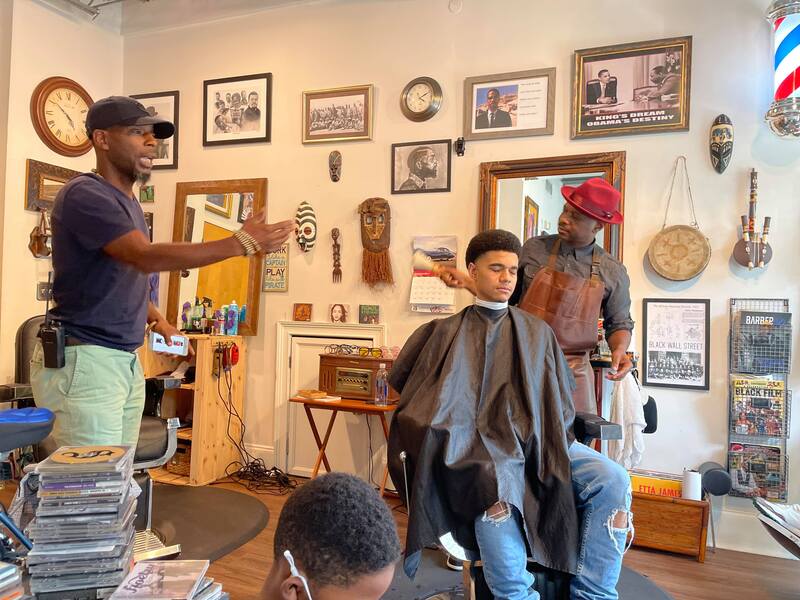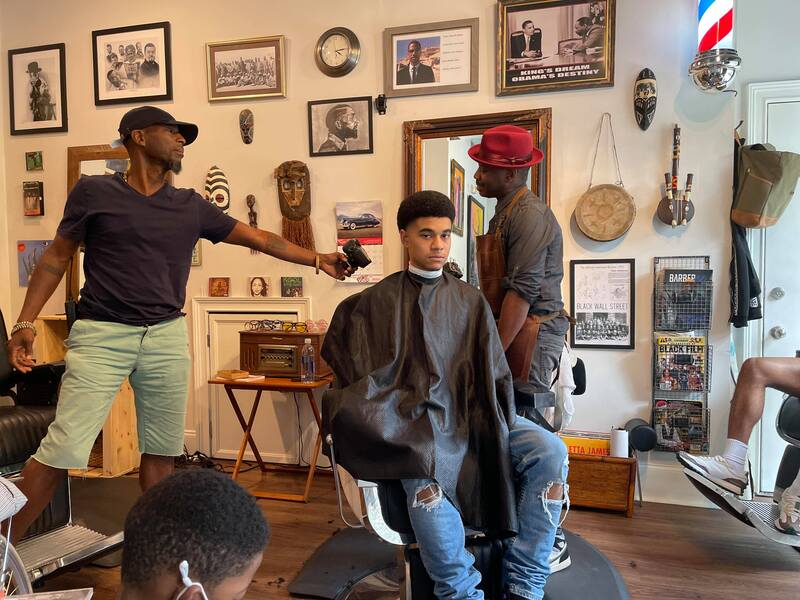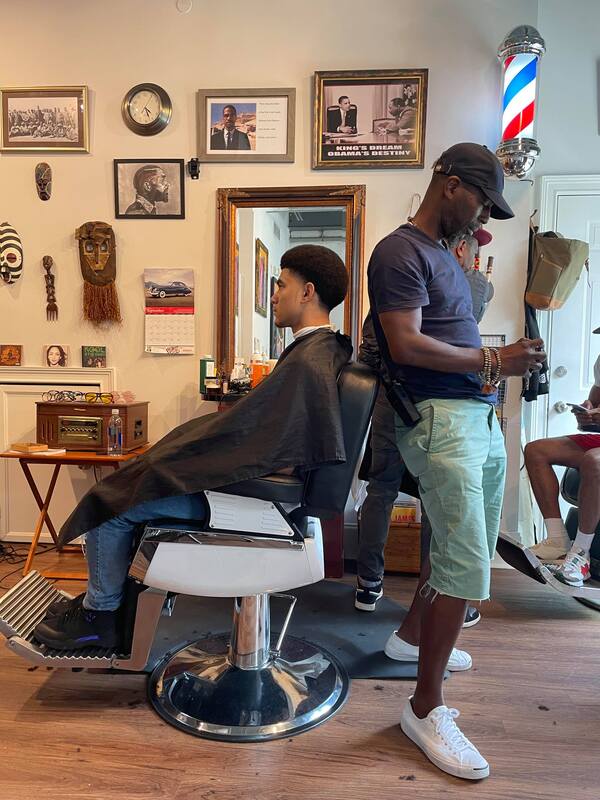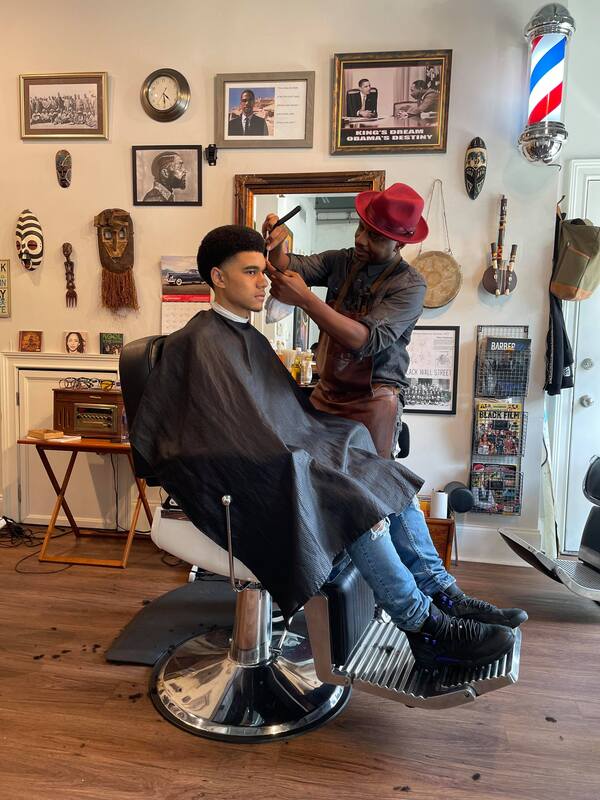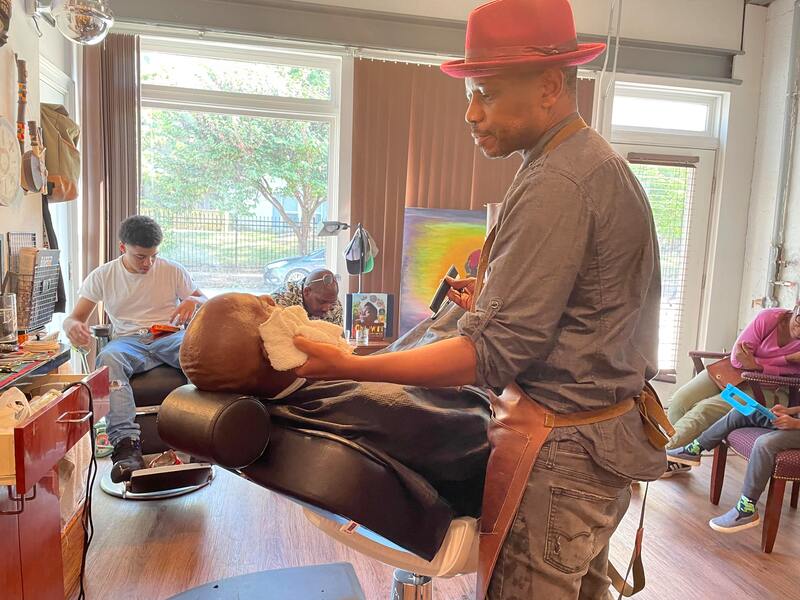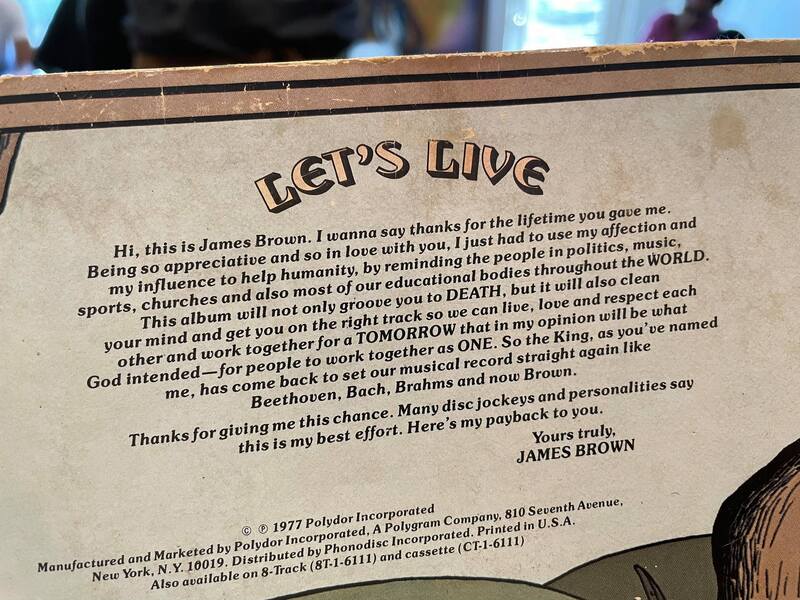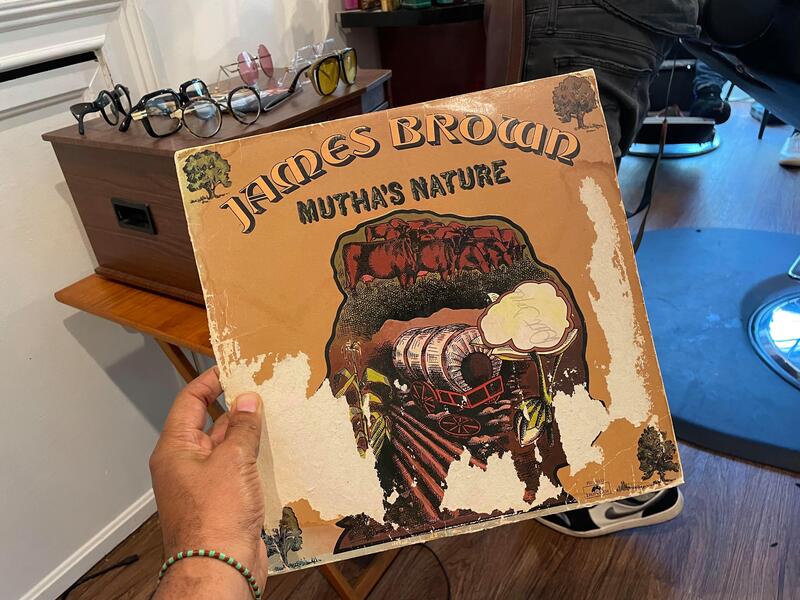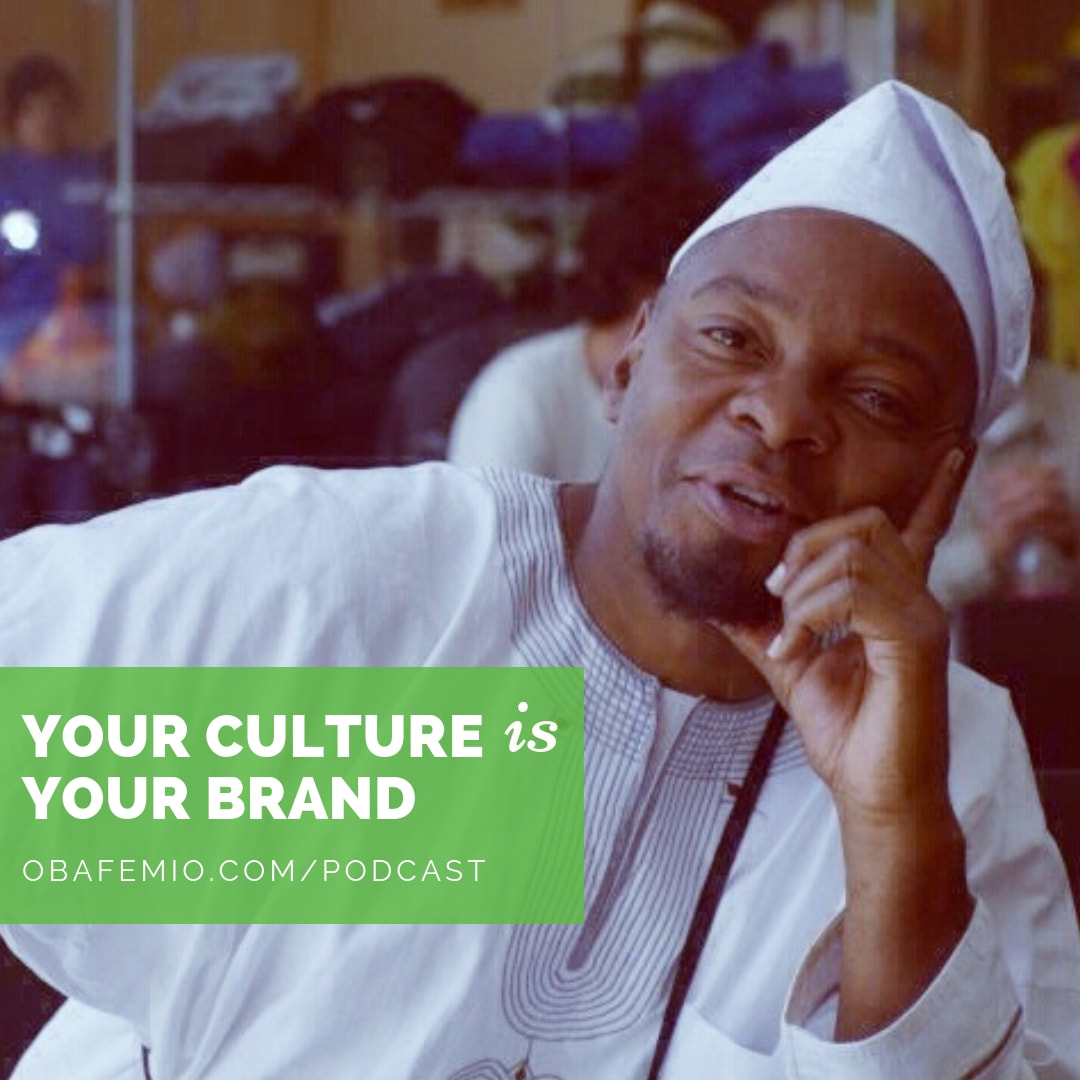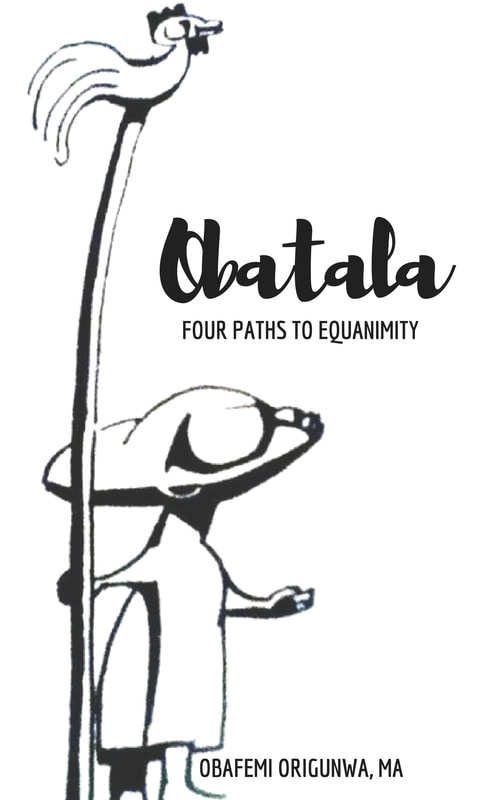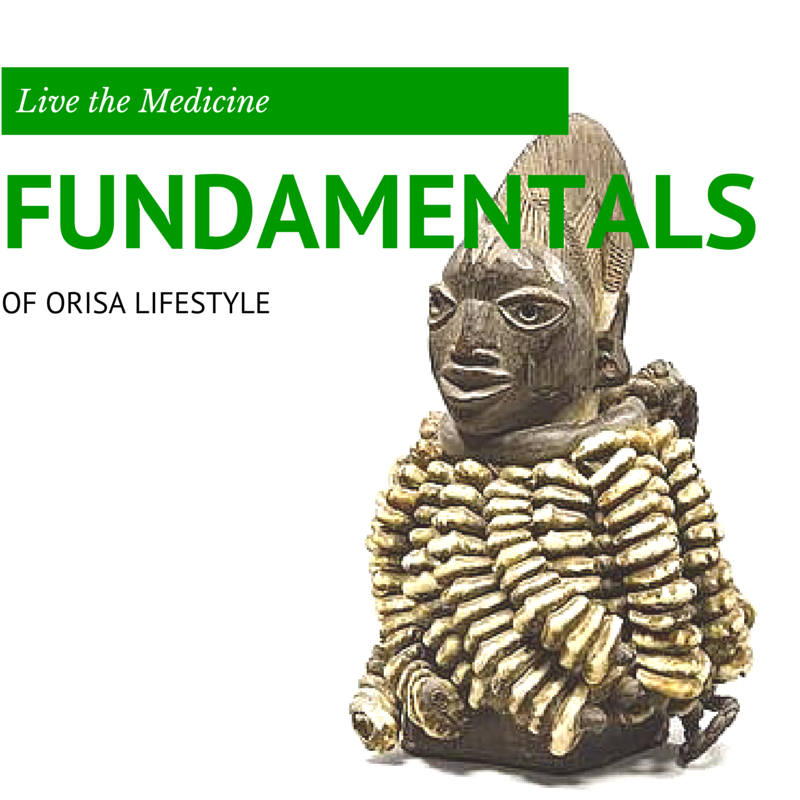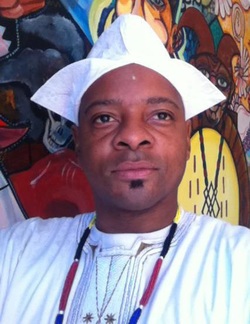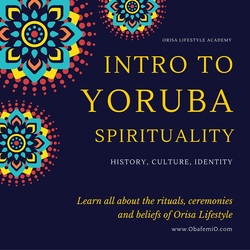|
Ogun oni gbajamo irun ni je Ogun the barber eats hair The statement above is part of a longer litany of oriki (praise poetry) for Orisa Ogun. In the final analysis, it means that the blade sustains the barber. Cutting hair is his livelihood and thus, the barber is a ward of Ogun, the orisa who governs everything that pertains to iron. So, because iron sharpens iron, it makes sense that men gather at the barber shop in order to become more refined. Like Ogun, the barber is a sculptor, who wields the razor with expert precision. Bit by bit, he cuts away all the non-essentials so that what remains is balanced and well-shaped. In the barber shop, however, every man carries his own symbolic razor. As we wait for our turn in the chair, we talk to one another, we brag on ourselves, and espouse our beliefs. Through this free-flowing, organic conversation, we sharpen one another in a way that every man emerges just a little bit better. In the Holy Odu OgundaMeji, Ifa tells us of Ogun's son, whose name is Ina. When Ogun's wife was expecting, he went to consult Ifa. The babalawo advised Ogun that he would have a son who would become great and whose name would be known all over the world. Here, the sacred text says the following:
Reputation Clamor These were Ifa's messages to Ogun Who woulld beget one child Whose influence would be felt the world over He was advised to offer sacrifice The babalawo said that Ogun must offer one he-goat, a bundle of white cloth, red cloth and black cloth so that the boy would be born safely and have a good reputation as well. Ogun offered the he-goat for safe delivery, but failed to make the sacrifice for good reputation. Ina was born safely, but arrived with intense drama. For one, the hands of the midwife who tended his birth were severely burnt as soon as she touched him. Then, after his first bath, they tossed his bath water into the bushes. When the water touched the bushes they immediately caught fire. As Ina grew up, any time he was happy, he wore white, red and black cloth, which his father had refused to sacrifice at the time of his birth. At those times, when his energy was highest, destruction would follow. Consequently, Ina's reputation become synonymous with fear and trepidation. At the same time, however, because he was the son of Ogun, Ina was indispensable. Nobody could cook without him. No house could be kept warm without him. Even Ogun himself could not perform blacksmithing without him. As a result, while some were trying to get rid of him, others were clamoring to get closer to him. Eventually, the wise ones assembled and they declared, We must figure out a way to manage Ina, son of Ogun. They devised a plan. Ina must be respected for who he is and not placed in places that are not suitable to his nature. When we see him clothed in white, red and black cloth, we will withdraw at once. Thus, if ever a farm or a home was burned, the owner himself was deemed irresponsible for mismanaging Ina, which is fire. Ifa says that we shall not extinguish the flame of youth. Instead, we will learn to manage that flame in a way that it is constructive to collective well being. The barbershop is Ogun's territory. It is where men fan the flames of youth and cultivate social refinement. Special thanks to brother Ernest, the best barber in Atlanta. And for clarification, Ernie’s in The Cut is not a barbershop, it’s a Cultural Institution where fine art and barbering intersect-appts: 470.540.6901 or [email protected]. Comments are closed.
|
Live the MedicineObafemi Origunwa, MAThought leader, Ifa priest and author of four definitive books, Obafemi Origunwa inspires metamorphosis through living the medicine that will heal your life and heal the lives of the people you're destined to serve. 
Raise Awareness

Internalize Principles

Embody Truth
|
